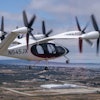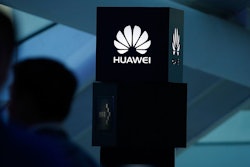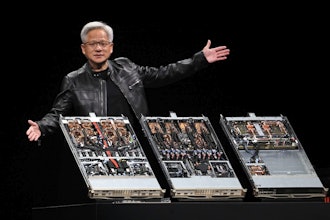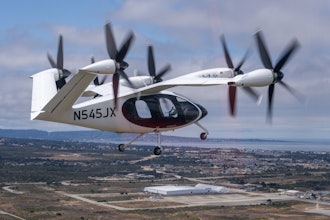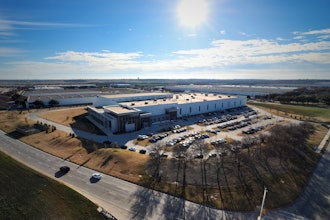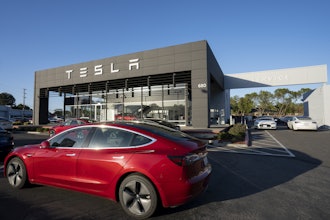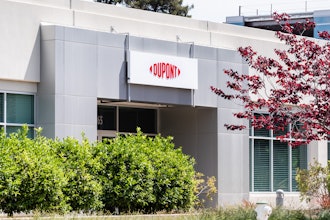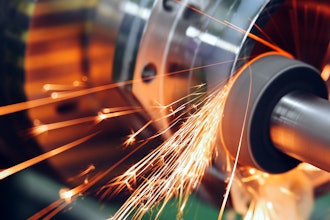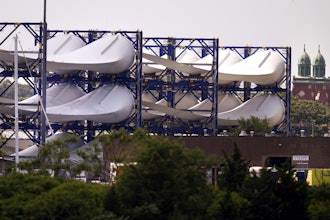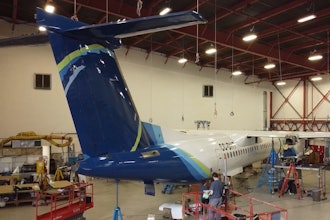Handheld Nose Can Smell Fake Booze
Researchers from the University of Illinois at Urbana-Champaign have created a handheld nose for sniffing out fake booze.
Luckily, this isn't a huge issue here in the U.S. At worst, we have a few hobbyists making moonshine, but that is primarily for private use. If they mess up, they're blinding themselves, and maybe a few close relatives around the holidays.
However, fake alcohol has had serious global health implications from China and Russia to the UK and beyond, even leading to several high-profile deaths at Mexican resorts. Typically, these moonshiners mess up the manufacturing process which leads to a high level of methanol, that's one of them that will blind you, or kill you.
The researchers designed a portable device that includes an advanced sensor array that can identify liquors and determine if they'd been altered. It has a disposable sensor with 36 dyes that change color when exposed to liquor vapor. An image analyzer takes two minutes to process the color changes.
The researchers have been able to identify the alcoholic content and brand of 14 different liquors with greater than 99 percent accuracy.
What may have U.S.-based booze barons shaking in their boots is that the proof-of-concept was also able to determine if the liquor was watered down, even by as little as 1 percent.
Boeing Unveils Huge Autonomous Cargo Concept
Boeing unveiled a huge new prototype of an autonomous air cargo concept. The electric vertical takeoff and landing (eVTOL) cargo air vehicle (CAV) transport system is an all-electric multicopter UAV that a team of Boeing engineers built in three months. It's capable of carrying payloads from 250-500 pounds and it has a large base: it's 15' long, 18' wide, and 4' tall. The CAV prototype weighs 747 pounds, and it driven by eight counter rotating blades.
The team recently completed flight tests in Missouri at Boeing Research & Technology's Collaborative Autonomous Systems Laboratory. Boeing HorizonX, the company's new innovation cell launched last year to find and accelerate transformative aerospace technologies, led the development on this potentially transformative CAV. The new concept will complement the eVTOL passenger air vehicle prototype aircraft in development by Aurora Flight Sciences, which Boeing acquired last November.
The entire concept is awe-inspiring. The only thing that Boeing muffed was the social media post that teased the tech with a note that said, "Where we are going, you don’t need roads…" So close, but we all know that where we’re going, we don’t need roads.
Battle Robots Fight to Settle Lube Feud
Pilot Labs has created what it calls the "most sophisticated and powerful fighter robot on the market." After watching the footage of it trying to break a toothpick, my initial reaction was ... false.
The company, which is based out of Shenzhen, China, debuted the bots at CES 2018 in Las Vegas, the tradeshow for the gadget crazed early adopters and a sneak peek at e-waste dumpsters in 2019.
The new cross between Battle Bots and the Rock'em Sock'em Robots is called the Moorebot Zeus Battle Robot and it features 22 motors, a wireless control and a customizable design. The company is targeting gamers and hobbyists, but I don't see why this can't lead to a slightly more aggressive track in FIRST Robotics competitions — seems like a logical next step from LEGO Mindstorms.
The robots are about 14 inches tall, weigh almost 5 lbs (2.2 Kg), and they can punch 150 m/sec. The battery lasts up to 50 minutes of continuous fighting which looks like ... well, it looks like a pair of first generation robots fighting, which is similar to the giant bots that fought back in October.
Users can customize the robots armor with the help of a 3D printer, and while the first version is wireless, the company hopes to add more autonomy and intelligence in the next iteration, included voice controls.
The Zeus Battle Robots are not cheap, the initial asking price is $1,600, but after watching the promo, it seems like a bargain to settle a blood feud passed from father to son. Wait, can robots have a blood feud?
This is Engineering By Design with David Mantey.



